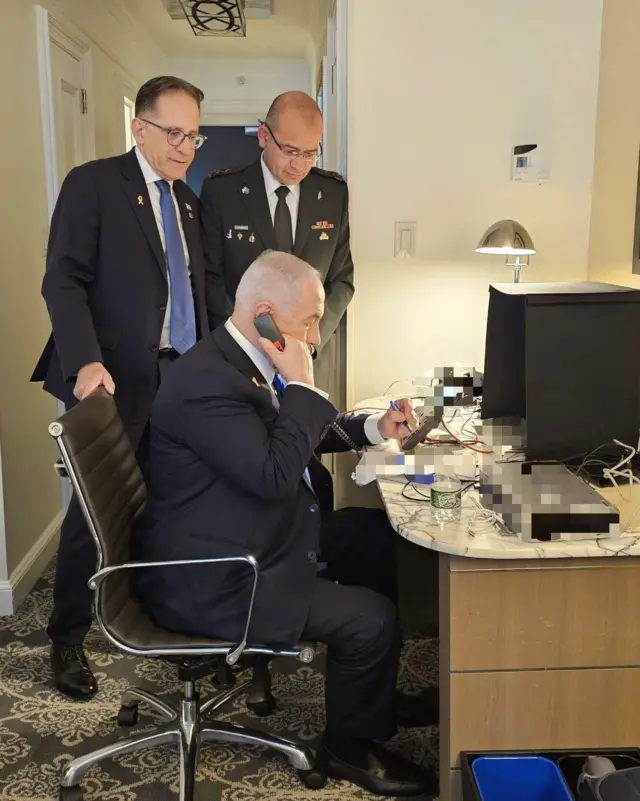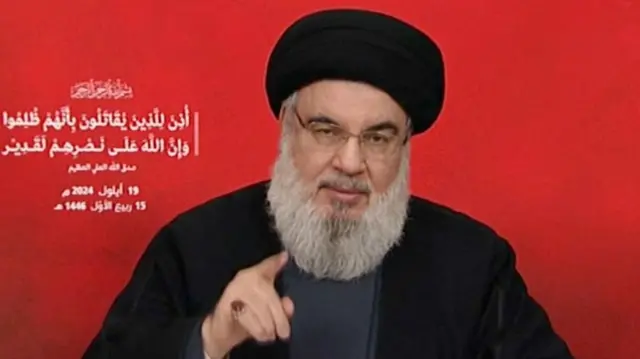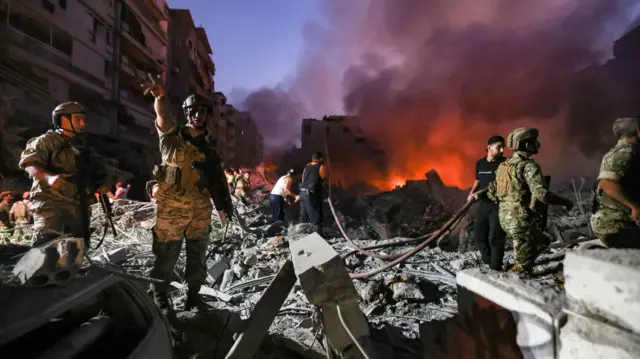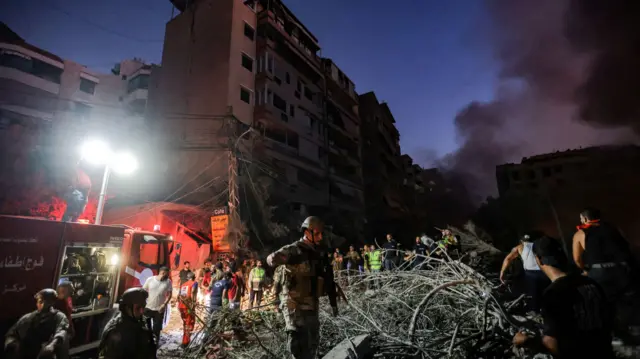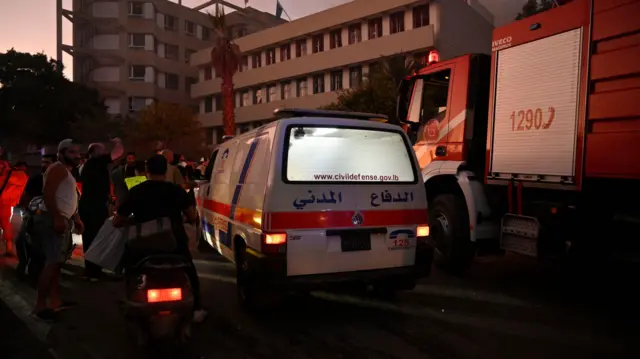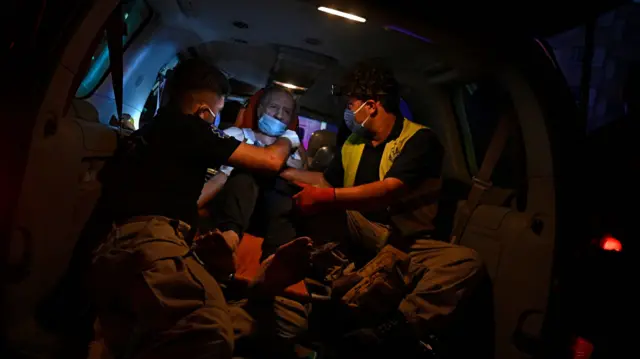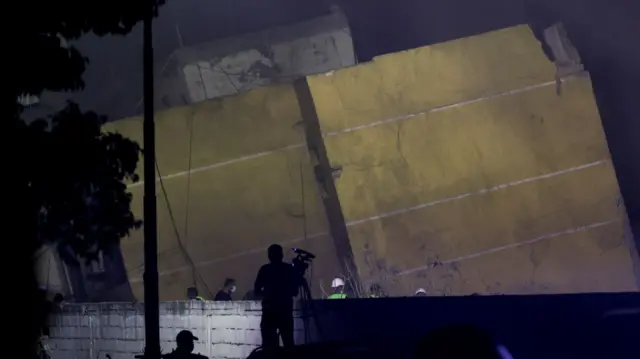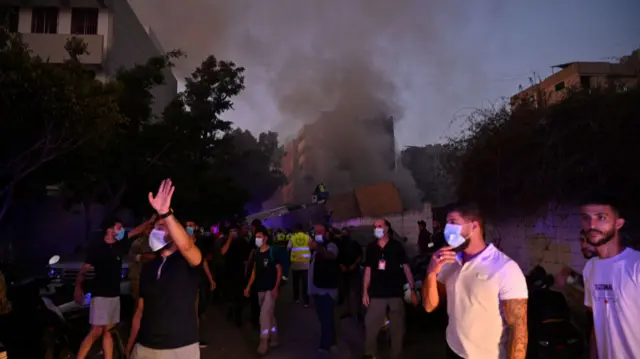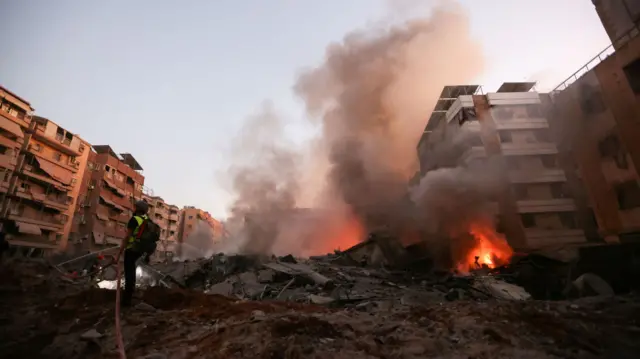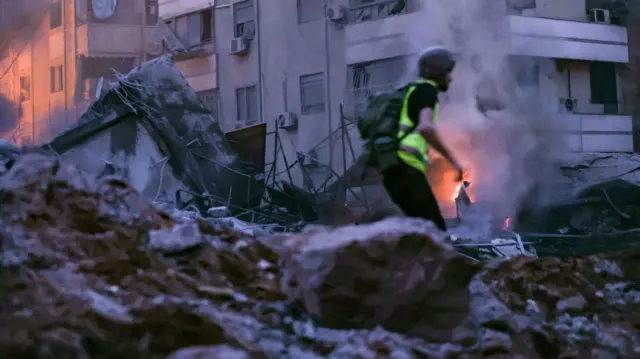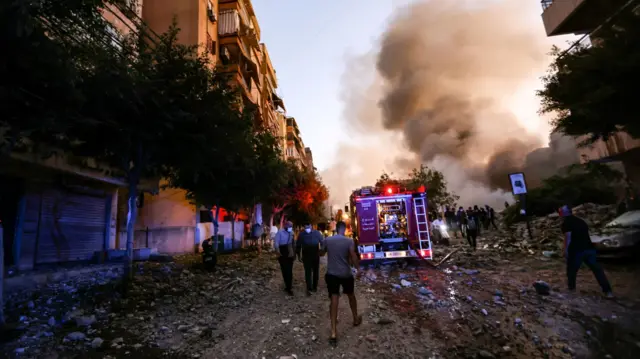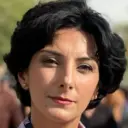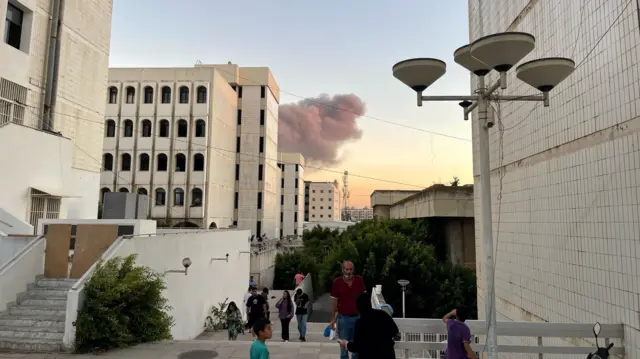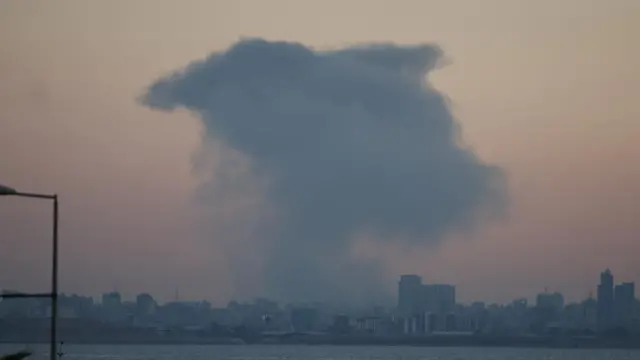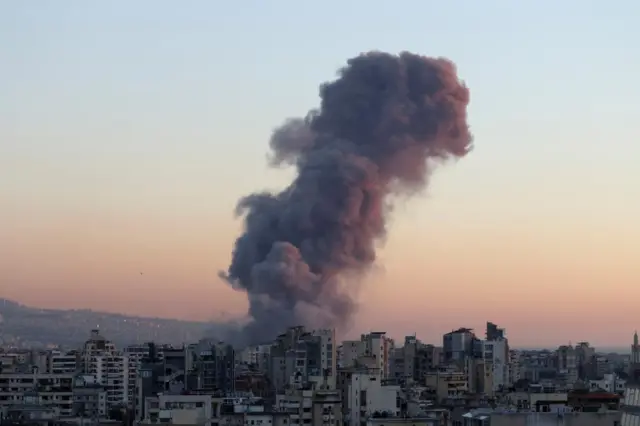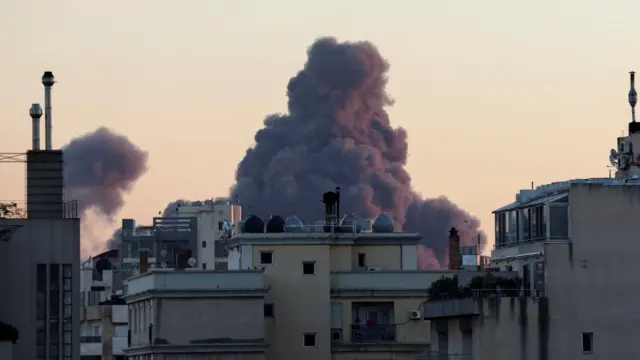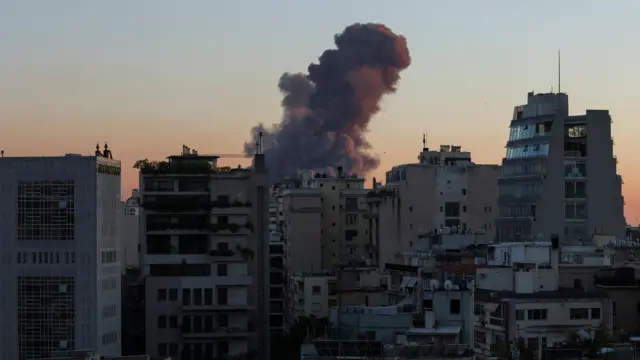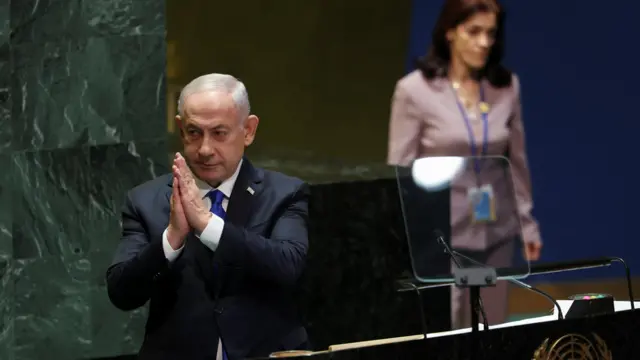Two killed and 76 injured so far, Lebanese health ministry sayspublished at 18:41 BST 27 September 2024Breaking
Lebanon's health ministry has just issued an update saying two people have been killed in the Israeli strike on Dahieh.
It adds that 76 people have been injured, with 15 of those needing hospital treatment.
But the ministry warns this is an initial death toll, with rescue operations and the removal of rubble at the site of the attack in southern Beirut ongoing - so it expects the number killed and wounded "will rise in the coming hours".
